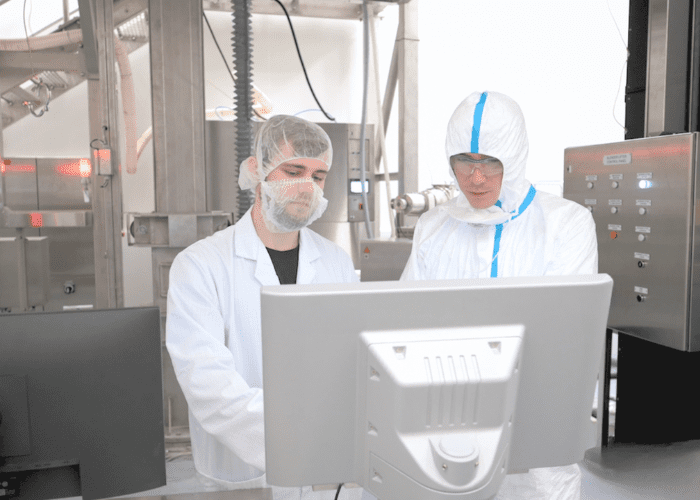THE collaboration will develop a working model of a cloud-first manufacturing facility that will use technologies such as artificial intelligence (AI), machine learning and the Internet of Things (IoT) to accelerate the speed at which new medicines are made.
Using these technologies in pharma could lead to patients gaining faster access to innovative treatments and could reduce operational costs for manufacturers by up to 30 per cent.
Alongside cost reduction, digital manufacturing technologies also allow greater agility to scale production and meet changing demand, with some estimates suggesting a possible 50 per cent increase in productivity.
The cost-savings made through the collaboration could also help to widen access to medicines, with half of the global population currently unable to access health services.
The digital collaboration at CPI’s Medicines Manufacturing Innovation Centre has already provided the pharma industry with significant benefits.
Earlier this year, a consortium of 13 partners found they could unlock faster, more effective digitalisation by working together to enable digital manufacturing methods.
They achieved this by building digital architectures that track data from the ground up to ensure the right people or systems have access to information to make fast and effective decisions.
This meant creating standardised digital solutions tailored for each step of medicines development. Those solutions were also designed to interact with each other to produce real time data and improve the speed of decision making and ability to move onto the next phase of product development.
Now into its second year, the digital collaboration will look to further enhance digital manufacturing for novel therapies such as RNA vaccines and cell and gene therapies as well as taking on supply chain challenges.
This exciting next step in the collaboration is being developed at CPI’s Medicines Manufacturing Innovation Centre near Glasgow, Scotland.
Dave Berry, Director of Digital Business Systems at CPI, said: “Crucially, this project could lead to treatments reaching patients much faster than currently possible, while also being able to save pharma companies time and costs. Opening faster access to new medicines could also allow companies to drive forward further innovations and increase sustainability.
“By providing pharma companies with a real-life replicable model of a cloud-first manufacturing facility, we will drive forward the digital capability of pharma manufacturers. However, our success will be rooted in humans collaborating effectively to deliver solutions that make a difference. We need to engage across pharma manufacturers of all scales if we are to realise the true potential of digitising medicines manufacturing.
“We are delighted to be collaborating with a host of industry leaders on this project. Their experience working in this area is second to none, and the collaborative approach has been excellent. Together we will accelerate our ability to provide a digital manufacturing solution that can be adopted by the industry sooner rather than later.”
Professor Duncan Graham, Associate Principal and Executive Dean of the Faculty of Science at the University of Strathclyde, said: “The Medicines Manufacturing Innovation Centre is all about accelerating the time it takes to produce new state-of-the-art solutions to medicines development and manufacturing.
“This new collaboration is a perfect example of industry, academia and government working together to drive transformative change by employing new technologies in an innovative way that will introduce new medicines into clinical use in a faster, more sustainable, and cost-effective manner.”
The Medicines Manufacturing Innovation Centre is a collaboration between CPI, the University of Strathclyde and founding industry partners GSK and AstraZeneca with funding provided by Scottish Enterprise and UK Research and Innovation.
The Centre is tackling a host of challenges faced by the pharma industry and CPI have welcomed leaders into a Digital Membership group to tackle those head on.
